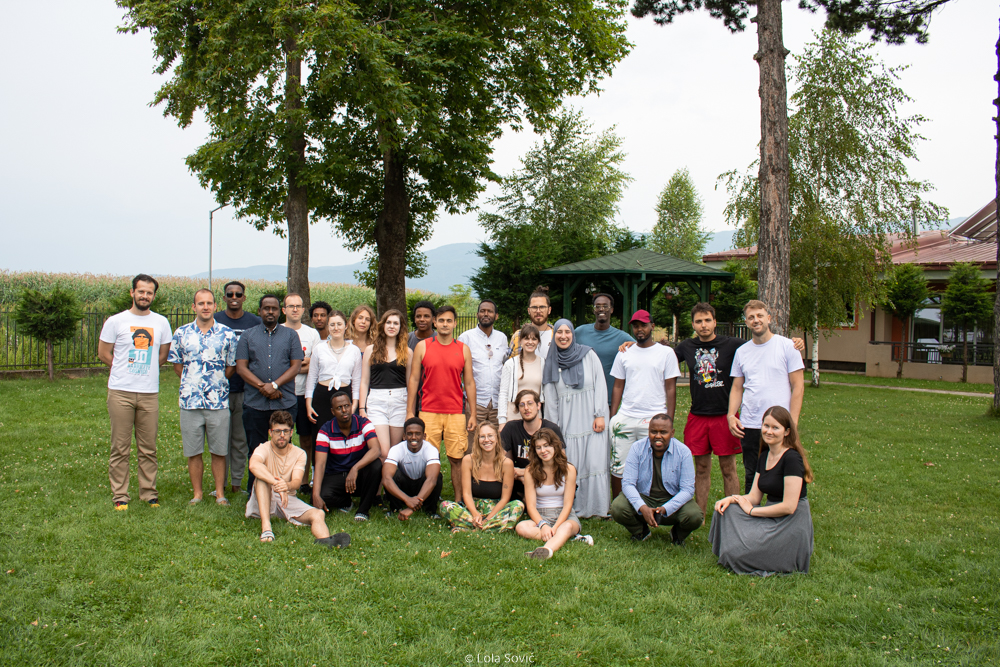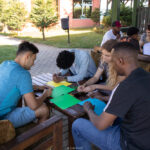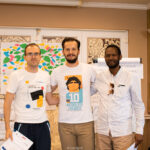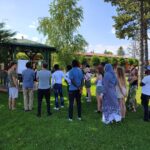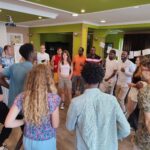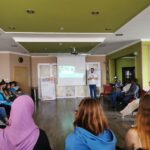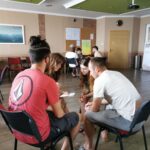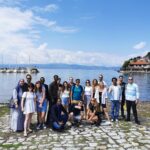From the 28th of June to the 6th of July, Volunteers Centre Skopje organized an Erasmus+ training course “Human Diversity!” about religious tolerance and human diversity in Struga, Macedonia. The project brought together a diverse group of participants from Macedonia, Romania, Slovenia, Spain, and Poland, as well as people from the Somali community living in the Netherlands, Denmark, and Finland. With a focus on various thought-provoking topics, participants had the opportunity to learn from one another, fostering inclusion and promoting tolerance throughout Europe.
This project was created and led by VCS’ Project Manager, Andrej Naumovski. According to him, “There is a need for more conversation about these topics. We are all facing an influx of information with mass media, and everyone can be easily oversaturated with it, especially young people due to their place on social media. The goal of this project is not about creating a universal truth or a new outline of the world, but to provide a deeper understanding of the basics of diversity and inclusion to young people that may take something good out of it and use it in their communities.”. Indeed, the participants agreed about the issues that should be dealt with in their communities: “There’s a lack of talk about diversity, and about civic engagement in general”. Others added that “there is a need to be more aware of the threats that can arise from a lack of inclusivity.”
A week to remember
The initial days of the training were filled with engaging activities designed to foster connections and explore our own personal identities. The activities were meant to give us tools to define ourselves and recognize certain aspects of our identity. By initially emphasizing the unique qualities that contribute to the overall diversity of the group, we were able to, through discussions, debates, and reflections, bring attention to our shared similarities. Starting from there, the participants formed small groups to explore projects and ideas centered around the promotion of tolerance and diversity, with the intention of implementing them in the future.
As the week progressed, we dived deeper into our core values and examined our perspectives on more specific issues. The first few days were also crucial for breaking the ice and creating a safe space to discuss heavier topics. This enabled our group to explore “hot topics” such as the role of religion in society, its impact on women, marriage, and attire — particularly the headscarf — and even its relation to science. The portrayal of the woman in the stories of Creation in different holy books, and her place in society became for example one of the “hottest topics”, not only in the workshops but in the discussions during the breaks.
Training connected to the place
Struga was the right place for exploring the topic of human diversity. As one of the local Macedonian participants said, “This city is a living example of living together beyond religious differences”. Indeed, Macedonian, Albanians and Turkish inhabit the town while sharing different faiths and languages. In the middle of the training, the group also went to visit Ohrid, a highly religious place marked by historical changes. This place was the starting point of the Slavs’ conversion to orthodoxy which was impulsed by emissaries of Byzantium. However, following the Ottoman conquest, a lot of places were turned into mosques, while the highest church authority was allowed to stay in the city. Beyond the beauty of the city, its history was a contribution that fed the debates among the participants.
A valuable experience to share abroad
Beyond the mutual learning and understanding fostered during this project, the ultimate goal was to equip participants with the necessary tools to spread future initiatives across Europe. In addition to the set of various insightful workshops meant to reflect and raise awareness about human diversity and collaboration, participants worked on their own social actions. Drawing upon their diverse backgrounds, they brainstormed several ideas, including educational programs in schools and companies, social media campaigns to promote civic participation, and initiatives aimed at fostering increased exchanges between communities.
Youen Le Bris
“This project has been funded with support from the European Commission. This publication [communication] and all its contents reflect the views only of the author, and the Commission cannot be held responsible for any use which may be made of the information contained therein.”

